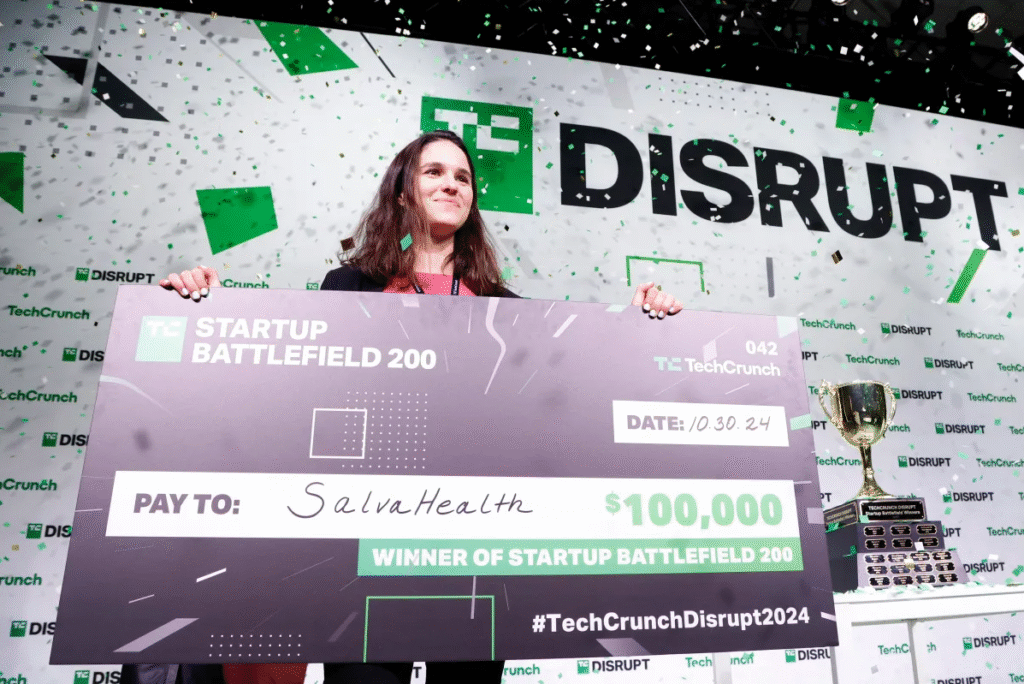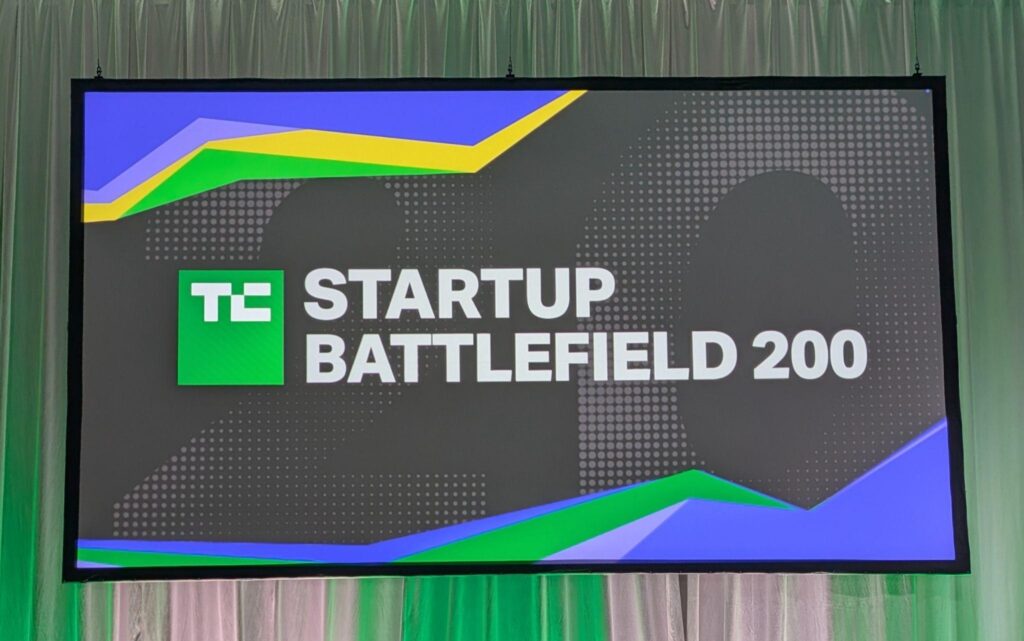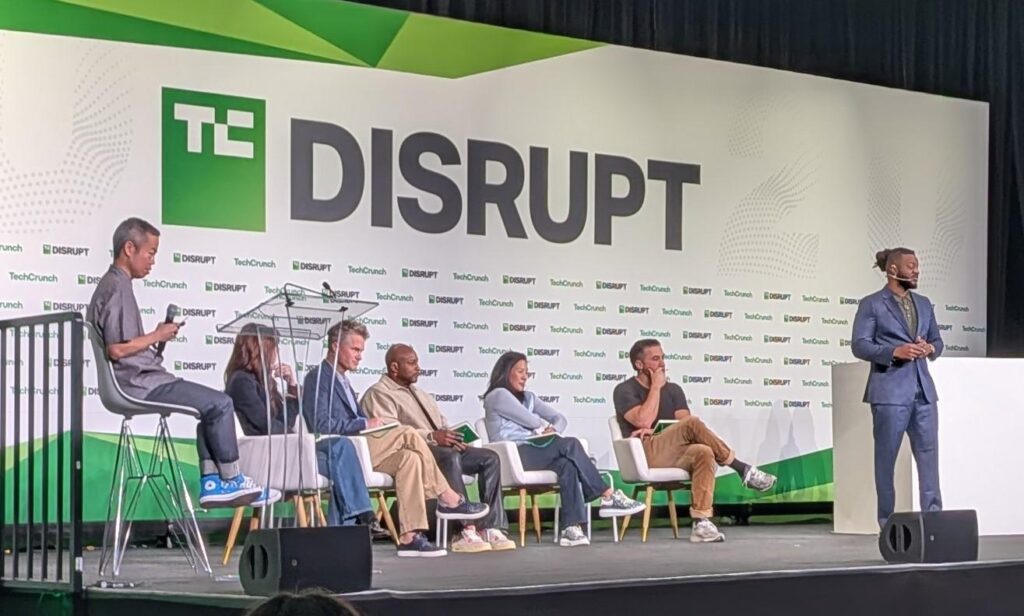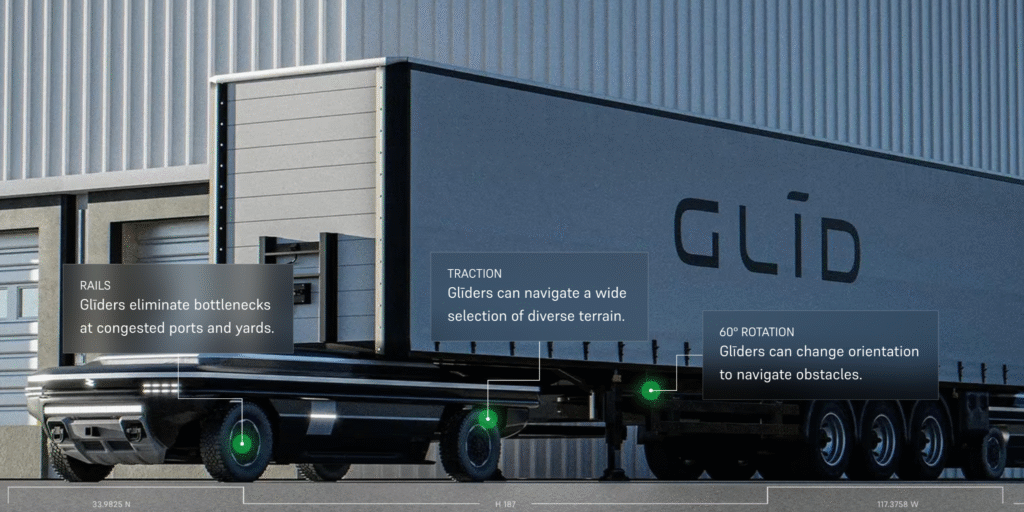The air in San Francisco’s Moscone Center is thick with a familiar buzz of ambition, and this year, the undercurrent is artificially intelligent. As the global startup ecosystem convenes for TechCrunch Disrupt 2025, an estimated 70% of investors are specifically scouting for AI-driven ventures on the main stage of the Startup Battlefield. This year, at what’s been called “The world series of startup competitions,” AI is not just a feature; it’s the foundational grammar of nearly every pitch, signaling a new chapter for technology and entrepreneurship.
For years, the TechCrunch Startup Battlefield has been the definitive launchpad for the next generation of iconic companies. It’s where world-renowned names like Dropbox, Fitbit, and Cloudflare first captured the world’s attention, competing for $100,000 in equity-free prize money and the invaluable spotlight of media and investors. The competition has a storied history of identifying and anointing the next big thing. But as the 2025 cohort of 200 handpicked startups prepares to take the stage, the question isn’t if an AI company will win, but which flavor of AI innovation will redefine the future.
Not to say the competition isn’t loaded with impressive non-AI innovation. Startup Battlefield company ÄIO invented a method to make edible fat from ag waste like sawdust, and Ökosix will show its biodegradable plastic at the competition. But following in the footsteps of the 2024 winner, Salva Health, which won with its AI-powered breast cancer detection device, the contenders in this year’s competition are poised to demonstrate that artificial intelligence is the new bedrock of disruptive innovation.

The Contenders: A New Breed of AI Innovators
The classic image of a startup often conjures up scenes of cramped garages, cluttered with laptops and big dreams. However, the reality for many contestants at Startup Battlefield looks quite different. These AI-driven companies aren’t just scrappy upstarts; many have already secured significant backing, with the leading three each raising over $25 million in funding. This new wave of innovators is entering the spotlight with both ambitious technology and serious resources behind them.
The 2025 TechCrunch Startup Battlefield Finalists

Of the twenty finalists in the competition, 18 were AI-native or AI-adjacent companies.
Elloe
Dubbed, “the immune system for AI,” Texas-based Elloe specializes in providing AI safety and compliance solutions to ensure responsible and regulated use of LLMs and generative AI. Their tools include real-time auditing, bias detection, explainability engines, and governance frameworks designed to prevent hallucinations, misinformation, and bias, thereby making AI deployment safer and more reliable. The company’s focus is on integrating these safety features across the AI development and deployment lifecycle to help enterprises build and deploy AI more quickly and securely.
Unlisted [Top Five Finalist]
Orinda, California-based, Unlisted incorporates an AI component through its real estate assistant called Airea™, which uses smart search technology to help users find homes they love across the U.S., including properties not officially listed for sale. This AI-driven platform enables users to join waitlists for homes they’re interested in, and it automates notifications to homeowners when potential buyers express interest, making the home buying process more proactive and personalized.
unthread
Slack-native, AI-powered support ticketing system combining human and agentic support to resolve tickets instantly across IT, HR, and customer teams. The New York City-bases company’s platform has shown to resolves about 40% of all tickets that come in across different teams for a full-stack AI insurance company.
CampusAI
The Polish company helps people and organizations adapt to the AI era by building real-world skills through immersive learning and Human+AI collaboration. CampusAI’s platform features a 3D virtual campus, where students learn through 2D applications or during physical offline meetings.
Cypher
Cyphr is a platform that helps small businesses become capital-ready by providing real-time financial assessments, personalized action plans, and automated loan packet generation. It leverages AI, extensive data sources, and embedded workflows to streamline the process of obtaining funding, ensuring businesses have the necessary financial, operational, and compliance signals.
Nephrogen [Top Five Finalist]
New York-based Nephrogen uses AI and high-throughput in vivo screening to engineer novel gene delivery vectors to create better gene delivery vehicles as curative therapies for untreatable diseases. The company’s NeFIND platform will be used initially to focus on kidney and pancreatic diseases, which affect 1 in 5 Americans but are notoriously difficult to treat with curative medicines because of delivery challenges.
Mappa
Mappa is a company that utilizes voice AI and behavioral voice analysis technology to understand people more deeply, helping organizations make better hiring, team-building, and collaboration decisions. The Florida-based company predicts real-world compatibility between individuals, which reduces turnover and accelerates the hiring process, and their services extend beyond recruitment to sectors like investment, education, and dating.
Super Teacher
Super Teacher is the first AI-powered tutor for elementary schools. The company’s platform makes giving every child in a classroom one-on-one tutoring more available. For teachers it’s like having a fleet of co-teachers available to provide individual instruction in their classroom at any time.
COI Energy
The Tampa, Florida-based COI Energy’s full-service digital energy management platform eliminates energy waste in buildings and repurposes that waste for good. It enables organizations to track and manage the carbon impact of energy efficiency measures in their building to meet sustainability goals and comply with mandated emissions targets.
RADiCAIT
Every year, over 100 million people are diagnosed with cardiological, neurological, or oncological disease. CT is fast, ubiquitous, and affordable, but shows only anatomy. PET reveals disease activity, yet is scarce, slow, invasive, and costly. Healthcare needs PET-level insight at CT scale. Enter.Massachusetts-based RADiCAIT, a company using AI to deliver PET-level image from every CT scan.
Mbodi
Mbodi AI, specializes in integrating generative AI into robotics systems to enable robots to learn new tasks through natural language commands quickly and reliably. The New York-based company’s platform supports diverse environments and workflows, allowing non-experts to teach, oversee, and diagnose robots using voice and demonstration, while ensuring high scalability and stability across fleets.
CyDeploy
Baltimore, Maryland-based CyDeploy is an intelligent, automated testing system that helps organizations understand the impact of technology changes, such as patches and updates, on their environment by creating a digital twin of their systems for testing purposes 3 4 . The company enables safe deployment of security updates through virtual system replicas, reducing operational risks and improving cybersecurity resilience.
Pytho AI
Equipping defense and military planners with AI‑powered tools to optimize mission planning and strategic decision‑making.
Identifee
Identifee is a technology company based in Los Angeles that provides an AI platform specifically designed for financial institutions. The platform helps these institutions to acquire new customers, improve service delivery, and facilitate business growth. Founded in 2019, the company operates within the financial services industry and focuses on leveraging artificial intelligence to enhance banking operations and customer engagement.
Charter [Top Five Finalist]
Charter makes outer space insurable. The company, based in El Segundo, California, uses AI to translate a large volume of unstructured data and machine learning, natural language processing, and retrieval augmented generation techniques to help ingest, categorize, and process data input by spacecraft manufacturers. That information, Yuk Chi Chan, Charter’s founder and CEO, explained to me, they then turn into data that insurance underwriters are able to read and understand to help them in evaluating risk and assessing feasibility for on-orbit insurance policies.
Skyline Nav AI
Skyline Nav AI specializes in GPS-independent navigation technology. The Massachusetts-based company’s “Pathfinder” technology employs machine intelligence to adaptively switch between GPS, camera-based, and IMU (Inertial Measurement Unit) navigation methods. This dynamic switching relies on advanced algorithms and confidence metrics, indicating the integration of AI and ML to ensure reliable and precise positioning across diverse environments and conditions.
The 2025 TechCrunch Startup Battlefield Winner

California-based Glīd streamlines the connection between road and rail logistics, reducing costs by an average of 40% and increasing throughput by 60%. The company’s AI-powered platform, EZRA-1SIX, orchestrates vehicle coordination, yard scheduling, route optimization, and transparent pricing, all while delivering real-time visibility and verified emissions tracking. Founded by Kevin Damoa, Glīd has introduced a range of hardware and software solutions designed to accelerate and lower the cost of moving shipping containers to the railhead and on to their final destination. Their flagship product, GliderM, is a hybrid-electric vehicle equipped with a rear hook that lifts and transports 20-foot containers directly to the rail—eliminating the need for forklifts or hostler trucks.

Standout Innovators Beyond the Finalists

Beyond the main contenders, the 2025 Startup Battlefield featured a diverse array of emerging AI innovators, each bringing fresh energy and unique approaches to the table. Among the most impressive were several startups that caught my attention for their creative applications of artificial intelligence across varied industries. These notable teams are pushing the boundaries of what’s possible, from AI in construction and influencer marketing, to Fashion AI and content creation.
Othelia
Synthetic media is flooding the zone and good stories are becoming the scarce asset. But, as Othelia Co-Founder and Co-Chief Executive Officer, Alexandra Hooven, told me, “Most generative AI tools today treat storytelling as pattern recognition which fundamentally misunderstands what creators do.” To address that problem, the Australian-based start-up with headquarters in LA has developed an AI-native storytelling workspace that helps writers, creators, and producers structure and manage complex narrative worlds—from first draft to multi-title franchise. The platform transforms narrative materials into structured, searchable data throughout the entire story creation process, from development through production, giving storytellers complete control over their intellectual property while maintaining creative authenticity.
Aha (aha.inc)
Influencer marketing is on course to be worth in excess of $30 billion in 2025, as noted in my recent article, The Rise Of AI-Powered Influencer Marketing: Key Trends For Investors. For San Francisco-based Aha, that vast market offers an opportunity to leverage AI to do less team busywork, enable faster publishing, and deliver cheaper reach for brands. Unlike agencies that send 7–8-name lists that yield only 3–4 deals one time, Aha delivers ready-to-collaborate creators from the start, dropping the CPM from $132 to $90 in a YouTube campaign for an AI company. Aha’s platform ensures a brand’s marketing funds stay protected until creators deliver verified content.
Wear It (wearit.ai)
Wear It is an AI-powered fashion platform where users can create, remix, and share fashion content, easily transforming style inspiration into shoppable posts with embedded affiliate links. Users earn commissions as they share outfits and grow their following, while brands benefit from increased engagement as their styles are remixed by the community. Co-Founder and CEO Kitty Yeung notes that traditional influencer marketing requires high spending for limited reach, but Wear It’s digital, AI-driven approach lets brands achieve greater exposure with many garments at a much lower cost. Headquartered in San Francisco, Wear It connects prominent designers and fashion enthusiasts worldwide.
Surfaice
Based in Palo Alto, California, Surfaice leverages AI to streamline repeatable construction programs, such as store rollouts, EV station installations, and other multi-site projects. Their platform integrates with tools like Procore, Smartsheet, and Excel to create a digital assistant that automates scheduling, reporting, and communication across numerous projects. Tailored for owners instead of contractors, Surfaice transforms repetitive workflows into scalable systems, enabling organizations to build faster, smarter, and more consistently. This innovation reduces production time by an average of 24% and costs by 7%. Genevieve Davis, Chief Development Officer at Surfaice, noted in a written interview, that “Store development is a $300 billion market in the U.S., still relying on spreadsheets and email chains. Technology has largely overlooked this sector due to underfunding from IT, as retailers focus on selling products rather than constructing stores.”
Dobs.AI
Created by former consultants from the Big 3, Dobs.AI is a San Francisco-based solution designed to manage millions of documents, extract data, conduct advanced analytics, and automatically generate actions using AI. A global transportation company generating $44 billion in revenue faced the challenge of manually auditing post-payments with a 17-member team, reviewing only top suppliers. Last year, this process recovered $3 million, but significant leakage often went unnoticed. By implementing Dobs.AI, the company streamlined its audit team from 17 full-time employees to just two, expanded its monitoring to four times more suppliers, and achieved a tenfold return on investment.
From Feature to Foundation: AI’s Defining Moment
This year’s Startup Battlefield marked a fundamental shift in how startups are conceived and built. Founders are no longer bolting AI onto existing products to make them AI-adjacent, they’re starting with AI as the foundational layer, reimagining entire industries and solving previously intractable problems. This dramatic shift is fueled, in large part, by the increasing accessibility of powerful AI models. APIs from OpenAI, Google, Anthropic, and others have democratized access to cutting-edge technology, empowering small teams to build sophisticated products with limited resources.
A handful of engineers can now leverage pre-trained models to create AI-powered solutions that would have required massive investment and specialized expertise just a few years ago. This democratization has unleashed a wave of innovation, allowing startups to focus on building unique applications, gathering proprietary data, and crafting compelling user experiences on top of these foundational AI layers.
The VC Lens: Evaluating the Next Generation of AI
The judging panel at the 2025 Startup Battlefield offered a glimpse into the evolving mindset of venture capitalists navigating the AI landscape. While the allure of AI remains strong, investors are now demanding more than just impressive technology; they’re laser-focused on sustainable business models and defensible competitive advantages. Key investment criteria extended beyond the underlying AI model itself.
While technical prowess was undoubtedly important, judges emphasized the significance of a compelling user interface that drives adoption, a well-defined go-to-market strategy that ensures scalability, and, perhaps most crucially, proprietary data assets that create a long-term edge.
Several VCs shared candid perspectives on the “AI hype,” cautioning against investing solely on the basis of technological novelty. “It’s not enough to just use AI,” one judge noted. “We’re looking for teams that understand how to build a real business around it, with a clear path to profitability and a sustainable moat.” Another VC emphasized the importance of addressing ethical considerations and potential risks early on: “Responsible AI isn’t just a nice-to-have; it’s becoming a must-have for investors who are thinking long-term.” The consensus was clear: the AI revolution is underway, but only those startups with a strong foundation, a clear vision, and a commitment to responsible innovation will capture lasting value.
The AI Moat: Building Sustainable Advantage

The 2025 Startup Battlefield shone a light on the immense potential of AI startups while also underscoring the significant challenges they face. Central among these is the “Moat” Problem: in a landscape where many startups leverage the same foundational AI models, what truly sets them apart?
The judges and audience alike scrutinized the contenders, seeking evidence of durable competitive advantages that extend beyond simply using AI. Several potential differentiators emerged during the event. Startups emphasizing proprietary data assets demonstrated a unique ability to train models on specialized information, creating superior performance in niche applications. Others focused on delivering exceptional user experiences, recognizing that even the most powerful AI is only as good as its ease of use.
Vertical-specific solutions, tailored to the unique needs of particular industries, also proved compelling in this year’s competition. Finally, startups that could harness network effects, creating virtuous cycles of user growth and data refinement, showcased the potential for long-term dominance.
The AI Economy: Not Just Smarter Tools, Smarter Processes
The Startup Battlefield stage, in this light, served as a microcosm of broader trends rippling through the tech ecosystem. The dazzling pitches and breakthrough ideas on display are harbingers of a future where AI-centric startups lead the charge, reshaping jobs, industries, and even our day-to-day routines. As this new class of innovators takes root, the AI-powered future is arriving faster than anyone could have predicted. The coming years will see AI shift from spotlight feature to structural foundation across the economy. This transformation promises not just smarter tools, but a fundamental reimagining of how we work, connect, and solve the world’s most complex challenges.
Disclosure: The author, Andre Bourque, has no financial or professional ties to any of the companies mentioned in this article and has received no compensation for its publication.

